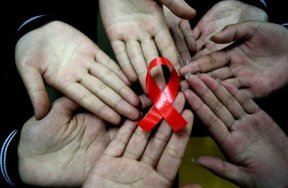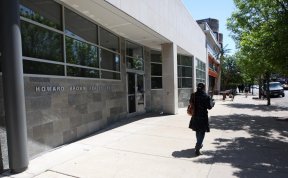
By: Ashmar Mandou
Mayor Emanuel and the Chicago Department of Public Health (CDPH) announced more than 3,600 people living with HIV in the city received vital services in the first year of new partnerships between CDPH, the University of Illinois at Chicago (UIC) and Howard Brown Health. This means four times as many individuals were served when compared to prior years. The new partnership was first laid out by Mayor Emanuel during his 2016 budget proposal, where he called for greater collaboration between CDPH and community providers to serve more residents living with HIV. “This is an important milestone that demonstrates how our new partnerships are not only effective and efficient, but exceed our goal of individuals served,” Mayor Emanuel said. “We are treating more Chicagoans living with HIV than ever before, allowing them to live their best lives while reinvesting savings in other prevention and treatment efforts.”
Following a competitive bidding process, UIC and Howard Brown Health assumed management of HIV Primary Care clinics in Englewood and Uptown, respectively, in March 2016. Since first assuming management of the clinics, both organizations have increased services, outreach and education, while spending less. “Chicago is working together to end the HIV epidemic,” said CDPH Commissioner Julie Morita. “This is a great example of the power of collaboration. We were able to quadruple the number of residents receiving services, helping more people living with HIV have access to the care they need to live long, healthy lives.”

“Primary care ensures a better quality of life for people living with HIV and Howard Brown Health is proud to serve those who need it the most in Englewood,” said David Ernesto Munar, President and CEO of Howard Brown Health. “We are especially proud to exceed our service goals and look forward to continuing this work to ensure the residents of Englewood receive quality care.” Primary care includes general check-ups but also help patients monitor their medication to reduce their viral load and ultimately reach viral suppression significantly reducing the risk of transmission. Treatment among individuals living with HIV is a key strategy in CDPH’s prevention model along with Pre-Exposure Prophylaxis (PrEP), a daily pill that helps prevent HIV. In addition to HIV primary care services, each clinic offers early intervention services to ensure patients are quickly linked and retained in care, mental health and medical case management services.
These partnerships are part of a citywide plan to ensure those living with HIV receive the care they need and to reduce the number of new transmissions of HIV. According to the 2016 HIV/STI Surveillance Report, 79 percent of Chicago residents newly diagnosed with HIV were linked to medical care, like what is offered at these clinics, within one month of diagnosis. Within 12 months of diagnosis, 90 percent of individuals had been linked to medical care, placing Chicago well ahead of national rates. “More people are living and thriving with HIV in Chicago than ever before,” added Commissioner Morita. “We will continue to invest available resources to provide quality care and ultimately bring this epidemic to an end.” For more information on the Primary Care clinics please visit www.cityofchicago.org/health.












